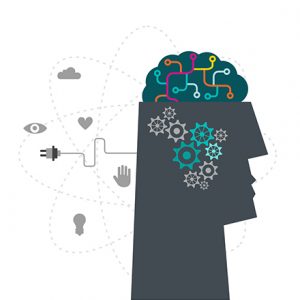
Keith Vertanen (CS/ICC-HCC) is the principal investigator on a three-year project that has received a $225,663 research and development grant from the National Science Foundation. The project is entitled, “CHS: Small: Collaborative Research: Improving Mobile Device Input for Users Who are Blind or Low Vision.”
Abstract: Smartphones are an essential part of our everyday lives. But for people with visual impairments, basic tasks like composing text messages or browsing the web can be prohibitively slow and difficult. The goal of this project is to develop accessible text entry methods that will enable people with visual impairments to enter text at rates comparable to sighted people. This project will design new algorithms and feedback methods for today’s standard text entry approaches of tapping on individual keys, gesturing across keys, or dictating via speech. The project aims to: 1) help users avoid errors by enabling more accurate input via audio and tactile feedback, 2) help users find errors by providing audio and visual annotation of uncertain portions of the text, and 3) help users correct errors by combining the probabilistic information from the original input, the correction, and approximate information about an error’s location. Improving text entry methods for people who are blind or have low vision will enable them to use their mobile devices more effectively for work and leisure. Thus, this project represents an important step to achieving equity for people with visual impairments.
This project will contribute novel interface designs to the accessibility and human-computer interaction literature. It will advance the state-of-the-art in mobile device accessibility by: 1) studying text entry accessibility for low vision in addition to blind people, 2) studying and developing accessible gesture typing input methods, and 3) studying and developing accessible speech input methods. This project will produce design guidelines, feedback methods, input techniques, recognition algorithms, user study results, and software prototypes that will guide improvements to research and commercial input systems for users who are blind or low-vision. Further, the project’s work on the error correction and revision process will improve the usability and performance of touchscreen and speech input methods for everyone.
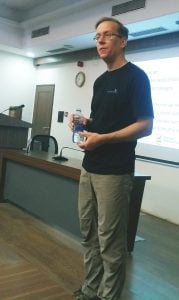
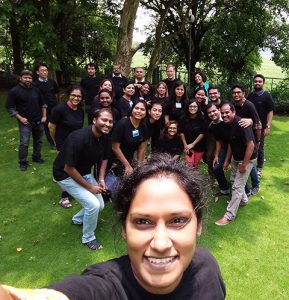
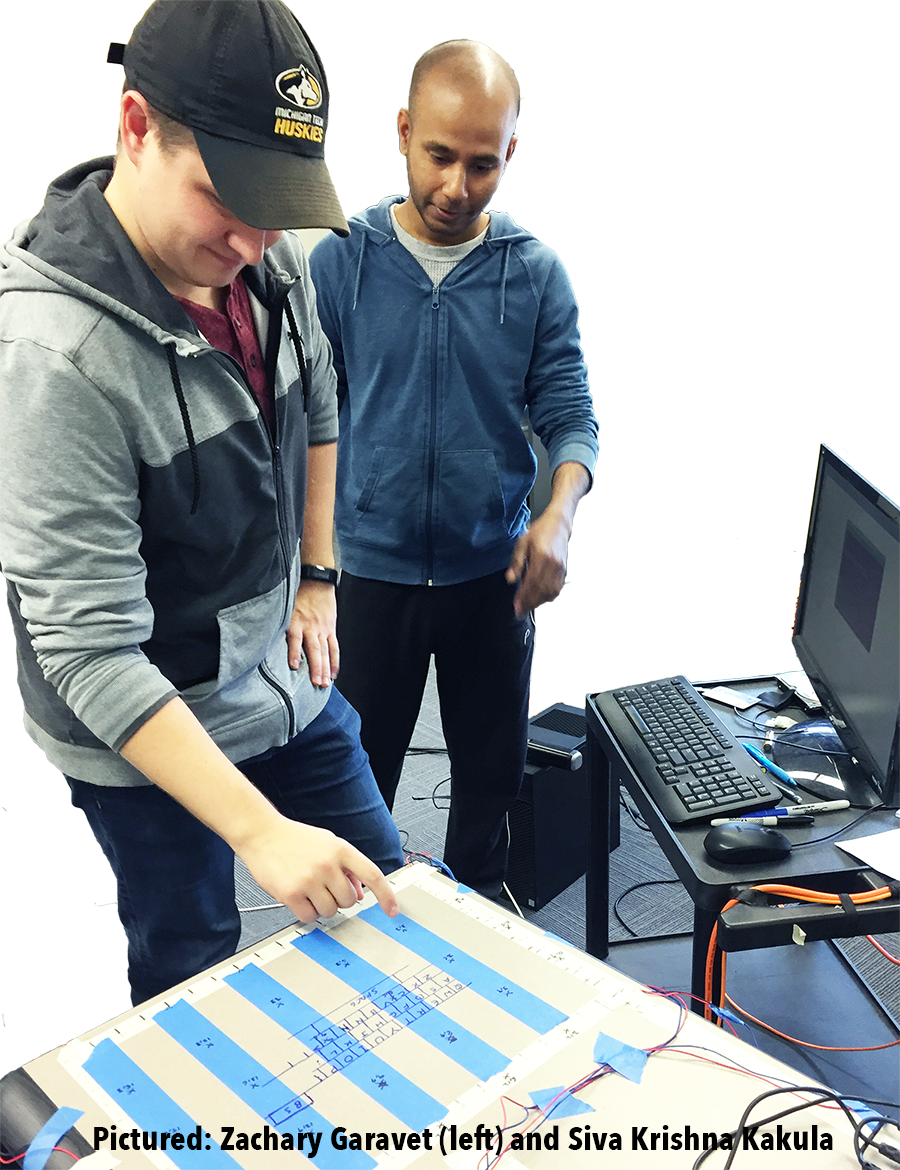

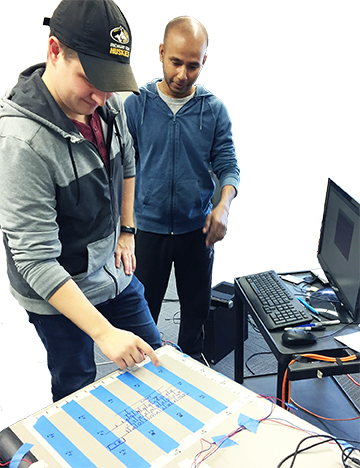 By Karen Johnson, ICC Communications Director
By Karen Johnson, ICC Communications Director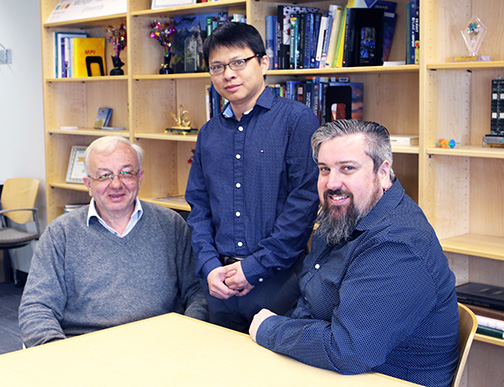 At the annual awards banquet of the Michigan Tech Institute of Computing and Cybersysytems (ICC), on Friday, April 12, three ICC members received the ICC Achievement Award in recognition of their exceptional contributions to research and learning in the fields of computing.
At the annual awards banquet of the Michigan Tech Institute of Computing and Cybersysytems (ICC), on Friday, April 12, three ICC members received the ICC Achievement Award in recognition of their exceptional contributions to research and learning in the fields of computing.

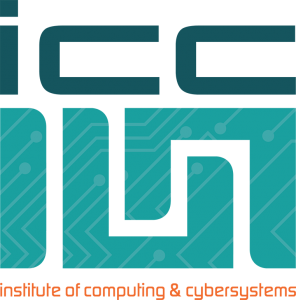 ICC Annual Retreat was held on April 21. Co-Director Dan Fuhrmann presented ICC Achievement Awards to two researchers for their outstanding research and honorable contributions to the ICC in 2017.
ICC Annual Retreat was held on April 21. Co-Director Dan Fuhrmann presented ICC Achievement Awards to two researchers for their outstanding research and honorable contributions to the ICC in 2017. 